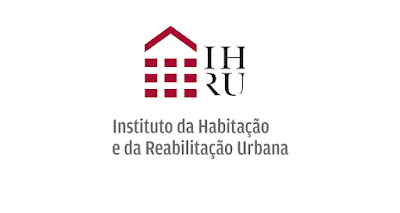The Institute of Housing and Urban Rehabilitation, I.P. (IHRU), under the promotion of public responses to affordable rental, has set the application deadline for 27 homes in various regions of the country as a lottery. The deadline is this Friday.

One- to five-bedroom residences in Almada, Beja, Cascais, Lisbon, Montijo, Porto, Santarém, Santiago do Cacém, Vila Nova de Gaia, and Vila Real began accepting applications on the third.
The houses will be awarded through a lottery among applicants who meet the program’s eligibility requirements and the notice requirements for each competition. If you wish to review all contest-related information, you can access the website here.
This initiative is a part of the suite of housing solutions made available by the IHRU to ensure families with no market-based housing options have access to housing.
According to the Ministry of Housing, this initiative falls under the category of “housing solutions made available by the IHRU to guarantee access to housing for families with no solution.”
Cooperatives
Cooperatives want to construct more affordable homes with the government.
Federation of cooperatives argues that future sales of supported housing should favor public entities.
Federation of Affordable Housing Cooperatives (FENACHE) is willing to collaborate with state entities on pilot projects for affordable housing solutions and argues that the state should have the right of first refusal for future sales of supported properties.
“We are very interested in working together with the IHRU [Housing and Urban Rehabilitation Institute], with municipalities, and with the State, naturally, in the design of these pilot projects, because, in fact, this is a different response to what was the traditional response of cooperatives and that has, first of all, to involve and be able to mobilize citizens for this new form of intervention,” said the president of FENACHE, Manuel Tereso, this Thursday (April 12).
The leader of FENACHE was discussing the Government’s proposal to implement pilot projects in the area of accessible leasing as early as 2023, which will allow for the establishment of “a new generation of cooperatives for the promotion of accessible housing” through a partnership between the State, municipalities, and the cooperative sector.
However, Manuel Tereso cautioned that this “cannot be accomplished overnight.”
“It is a work that does not have an immediate manifestation in terms of completion, as, in fact, everything associated with the promotion of housing: unfortunately, it always has very long deadlines for completion, not only for licensing issues that fatally consume a large portion of this type of project’s time, but also for the construction itself,” he said.
The leader acknowledged that there may be “some reservations” regarding the sale of cooperative housing to its members, citing the failure of the majority of collective housing projects in the past because “they began as collective housing but quickly became individual property.
IHRU and municipalities with preference in house sales to prevent speculative buying
When asked what will prevent the owners of a house acquired with public assistance through a cooperative from engaging in speculative sales, Manuel Tereso stated that this is a “problem that can be easily solved” if the IHRU and municipalities are given “always preference in the sale of these houses.”
“No cooperative leader with any sense wants to promote housing for sale to members who will then speculate, live, and profit from the leaders’ labor,” he emphasized.
The Government’s proposed package of measures to address the housing crisis is estimated to cost 900 million euros and will target five axes:
Increase the supply of real estate used for housing; simplify the licensing procedures; increase the number of houses on the rental market; combat speculative activity; and protect families.
In its proposal, the government establishes the promotion of affordable housing, as well as the promotion of affordable rental housing, by establishing a 250 million euro (ME) line of financing aimed at cooperatives, for-profit companies, municipalities, and other third sector entities.
In the 1980s and 1990s, controlled-cost housing cooperatives were very popular, allowing individuals, municipalities, and businesses to access houses built or purchased with the support of the State through tax and financial incentives, availability of land, and other forms of public assistance.

